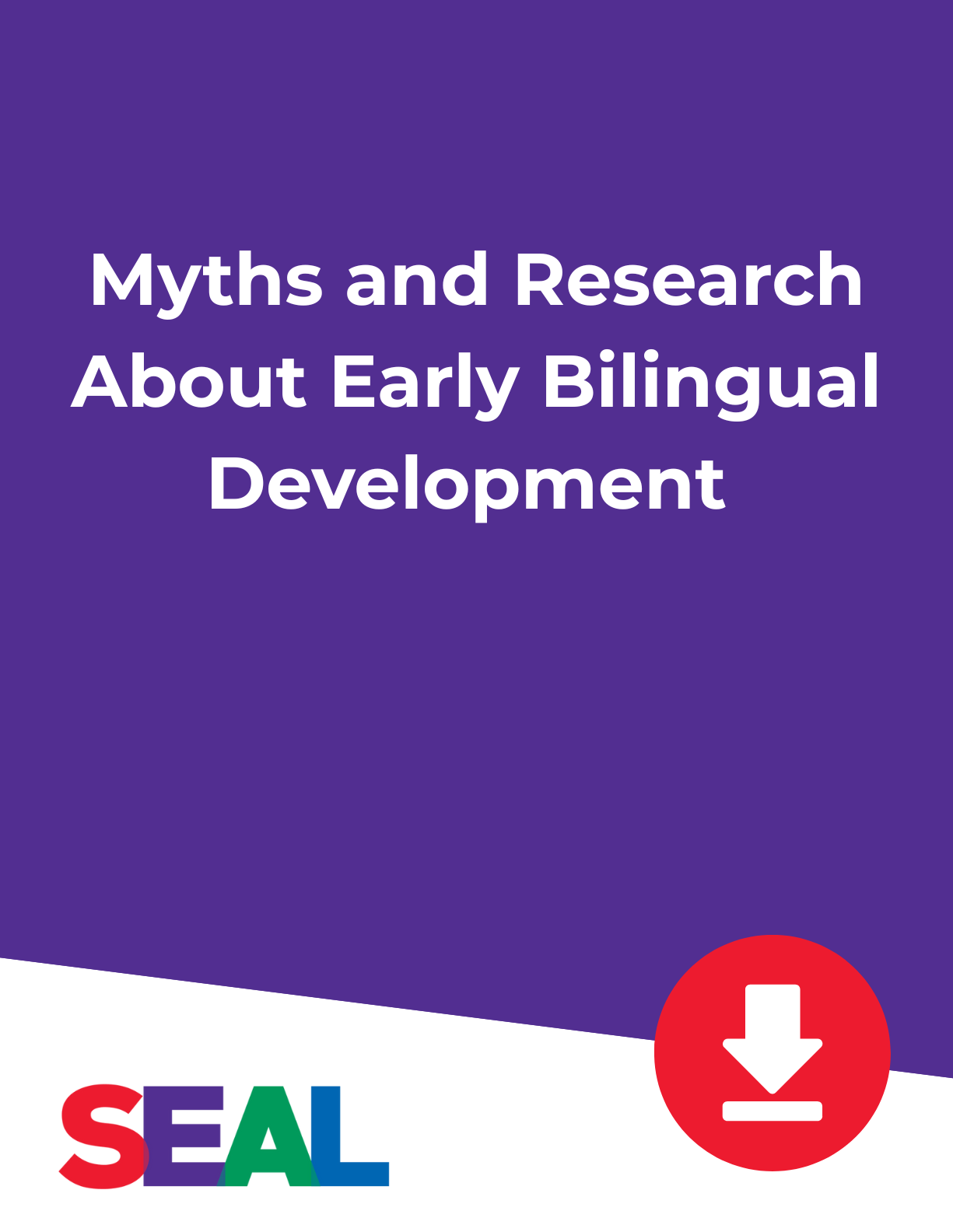
SEAL Resources
Dive into our curated collection of resources—from research to hands-on practices to engaging educational videos—brought to you by SEAL’s experts. Uncover innovative strategies and insights for how to support Multilingual Learners, and all students, in the classroom.

Effective ELD in California's Dual Language Programs
%20copy.png)
Key Lessons from Over a Decade of Impact
When schools center language, culture, and community, English Learners don’t just succeed—they thrive. We’ve identified eight key lessons about what it truly takes to create schools where multilingual learners flourish. Download to read more about these key lessons.

Myths and Research About Early Bilingual Development
This resource lists six common myths about early bilingual development and provides research that debunks them. It serves as a valuable tool for educators engaging families in discussions about the benefits of home language development.

SEAL's 11 High-Leverage Pedagogical Practices
Our 11 High-Leverage Pedagogical Practices equip educators to create rigorous, joyful, and language-rich classrooms where every student succeeds. By integrating students’ linguistic and cultural assets, SEAL fosters a learning environment that values home languages and empowers diverse learners to reach their full potential.

Effective ELD in California's Dual Language Programs
SEAL Videos

Why some bilingual learners are outperforming native speakers
GMA explores why some ELs are outperforming students whose first language is English.
Transfer & Designated ELD in a Spanish bilingual Classroom
Transfer lesson/Designated ELD connected to science content in a 2nd grade Spanish bilingual class.
Sentence Patterning Chart | SEAL Strategies
Building complex sentences/understanding structure of language in a Kindergarten bilingual class.
TheDictado - Bilingual 2nd Grade Classroom
Foundational skills in Spanish/English with Literacy Squared experts Dr. Escamilla/Dr. Hopewell.
Super Duper Sentence Builder
“Super Duper Sentence Builder” SEAL strategy in a preschool classroom.
SEAL Pedagogy Across Preschool through 5th Grade
Alignment of pedagogy & principles from preschool-5th grade to deepen understanding of SEAL model.
SEAL Partner Resources
Access resources from SEAL partners to support your students in the classroom and at home.

English Learner Success Forum: Curriculum Adoption Toolkits
English Learner Success Forum Curriculum Adoption Toolkits are designed to help education leaders—district administrators, curriculum committees, and school boards—select and implement high-quality instructional materials (HQIM) that are inclusive and linguistically responsive. This step-by-step resource ensures multilingual learners are considered at every stage of the adoption process.

OELA: Dual Language Immersion Playbooks
OELA resource for states, districts, schools, families, and communities, emphasizing equitable access for English learners and the expansion of multilingual pathways.
.png)
Closing the Education Gap For K–12 English Learners Advocacy Needs and Opportunities
The report, "Closing the Education Gap For K–12 English Learners: Advocacy Needs and Opportunities," delves into the educational challenges faced by Latino English Learners (ELs). It underscores the importance of robust parental involvement, improved bilingual and asset-based educational programs, and strategic teacher recruitment and training. The document also outlines advocacy strategies for legislative changes and community engagement to secure equitable education and enhance bilingual education, reflecting on the enduring impact of the ASPIRA v. NYCBOE case.

Operationalizing High-Quality Dual Language Programs
A robust body of research indicates that dual language immersion (DLI) is the gold standard emergent bilinguals.

%201.svg)